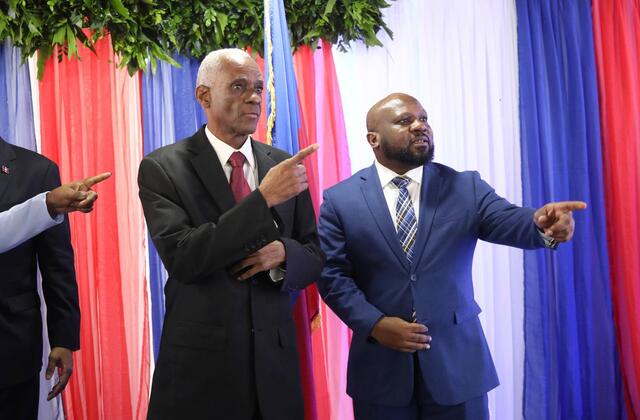In a surprising turn of events, Haiti’s recently installed transitional council faces potential fractures following the announcement of a new prime minister, threatening the delicate process of selecting new leaders for the troubled Caribbean nation.
Four out of seven council members with voting powers stunned many on Tuesday by declaring Fritz Bélizaire as their choice for prime minister. This unexpected political alliance caught many Haitians off guard and has created divisions within the council.
The opposing council members, who do not support Bélizaire’s appointment, are now considering their next steps, including challenging the decision or resigning from the council altogether.
The turmoil escalated during a scheduled council meeting on Tuesday, where an election for the council president was on the agenda. However, within two hours and amid apologies, it was revealed that not only a president had been elected but also a prime minister, causing murmurs of discontent among those present.
The Montana Accord, a civil society group represented in the council, condemned what they described as a “conspiracy” by four council members against the Haitian people, labeling it a move by political and economic forces to maintain control over the state.
Haiti’s political landscape has long been marked by clandestine dealings, and this latest development raises concerns about increased instability, especially as the country grapples with gang violence in its capital and beyond.
During an online webinar, François Pierre-Louis, a political science professor and former Haitian politician, expressed his views on the situation. He pointed out the influence of Jean-Charles Moïse, a prominent politician, in Bélizaire’s nomination, highlighting the complex power dynamics at play.
The unfolding events in Haiti underscore the challenges of navigating political transitions in a country plagued by deep-rooted issues and external pressures.















































